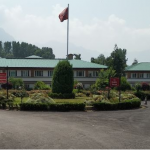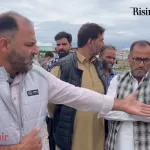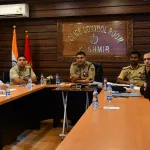Every society is marked by various inequalities, and addressing these disparities is a fundamental responsibility of the law. In order to combat the negative consequences of inequality, states often adopt affirmative action mechanisms. In India, reservation has long been considered one of the most significant ways to achieve affirmative action.Reservation policies are rooted in the principles of social justice, aiming to uplift marginalized sections of society by providing equitable access to education, employment, and political representation. These policies seek to address historical injustices, promoting inclusion and enabling disadvantaged communities to integrate into the mainstream. However, when the scope of reservation expands disproportionately, as in Jammu and Kashmir with a 65% reservation (excluding horizontal categories), questions arise regarding its impact on the unreserved categories and the broader social fabric.
The Dilemma of Proportional Representation
Reservation was originally designed as a bridge to connect marginalized groups with the dominant sections of society, ensuring that those historically excluded would have fair opportunities. However, when the proportion of reserved seats becomes too large, the principle of proportional representation is called into question. In Jammu and Kashmir, the general category, which includes economically weaker sections not covered by the reservation policies, faces reduced opportunities due to the significant increase in reserved categories. This has created a paradox where a system intended to promote inclusion may inadvertently exclude other disadvantaged groups, especially those in the general category.This situation reveals a structural imbalance, where the overrepresentation of reserved categories leads to new forms of marginalization. The general category, despite encompassing diverse economically disadvantaged individuals, faces systemic disadvantages, illustrating the unintended consequences of an overly extended reservation system.
Historical Context and Unintended Consequences
Historically, reservation policies were introduced to dismantle barriers that excluded marginalized groups from socio-economic opportunities. In traditional societies, opportunities were often governed by institutional structures like caste, religion, and family. The introduction of reservation aimed to challenge these structures and provide a path toward inclusion. However, in contemporary regions like Jammu and Kashmir, the expansion of reservation policies has led to unintended consequences. By concentrating opportunities within reserved categories, the system risks alienating the general population, which is increasingly unable to access equitable opportunities. This alienation undermines the original intent of reservation, fostering resentment and deepening societal divides.
The Changing Landscape in Jammu & Kashmir
The recent changes in Jammu and Kashmir’s reservation policies have reignited debates about equity, representation, and the balance of regional aspirations. After the abrogation of Article 370, the region’s political and administrative landscape underwent significant shifts. The new reservation framework extends benefits to previously underrepresented groups, such as Scheduled Tribes (STs), Scheduled Castes (SCs), Other Backward Classes (OBCs), and economically weaker sections (EWS). These policies align with the national model of affirmative action, aiming to correct historical injustices. However, in a region as diverse and demographically sensitive as Jammu and Kashmir, the implementation of these policies raises complex questions.
A notable change is the inclusion of the Pahari-speaking community in the ST list, which has led to tensions with the Gujjar-Bakerwal tribal community. Historically, the Gujjar-Bakerwal community dominated the ST reservation quota. The inclusion of the Pahari community, which is seen as more economically and educationally advanced, has sparked concerns about diminishing opportunities for historically marginalized groups. Although the government added additional reservation for STs and OBCs to address these concerns, these changes have come at the expense of the unreserved general category, reducing the share of open merit seats from 50% to 40%. To better understand the allocation of reservation percentages in Jammu and Kashmir and its implications, the following table outlines the current reservation framework post the abrogation of Article 370:
| Category | Reservation Percentage |
| Reserved Categories | |
| Scheduled Castes (SC) | 8% |
| Scheduled Tribes (ST) | 20% |
| Other Backward Classes (OBC) | 8% |
| Residents of Backward Areas (RBA) | 10% |
| Economically Weaker Sections (EWS) | 10% |
| Residents along ALC/IB | 4% |
| Social Castes | 4% |
| Horizontal Reservations | |
| Ex-Servicemen | 6% |
| Physically Challenged Persons | 4% |
| Unreserved (Open Merit) | 30% |
Merit vs. Representation: A Delicate Balance
When reservation policies extend beyond reasonable limits, they risk undermining merit and causing reverse exclusion. This imbalance is particularly pronounced in Jammu and Kashmir, where the general category population, despite including economically disadvantaged individuals, faces diminishing opportunities. The overextension of reservation quotas fuels perceptions that the system undermines merit, leading to debates about the fairness and effectiveness of such policies.This situation reflects a broader societal trend: while identity-based policies seek to address historical injustices, they also risk reinforcing divisions. By prioritizing caste or community identity over broader social and economic factors, reservation policies can inadvertently perpetuate separations, rather than fostering a cohesive and unified social fabric.
A Call for Recalibration
The current situation in Jammu and Kashmir illustrates the limitations of rigid reservation policies. While these policies were designed to correct past injustices, they must evolve to address contemporary needs. When reservation policies exclude significant sections of society, they risk exacerbating inequalities instead of alleviating them. To move forward, the focus should shift toward a more balanced approach that considers economic disparities across all sections of society, rather than solely focusing on caste-based identities. A more inclusive approach should prioritize broader measures, such as improving education, skill development, and equitable access to resources. These measures would foster a more holistic form of inclusion, addressing the needs of all disadvantaged groups, whether they belong to a reserved or unreserved category. Regular review and recalibration of reservation policies are essential to ensure they continue to fulfill their intended purpose; empowerment and inclusion, without leading to exclusion.
Judicial and Constitutional Oversight
In expanding reservation policies, it is crucial that they align with constitutional principles to avoid legal challenges, as demonstrated by key Supreme Court rulings. The Indra Sawhney case (1992) established a 50% cap on reservations, with exceptions only if supported by socio-economic data. Similarly, in Jaishri Laxman Rao Patil vs. Chief Minister (2021), the Court struck down Maharashtra’s Maratha reservation, emphasizing the need for evidence-based justifications for exceeding this limit. For Jammu and Kashmir, these judicial precedents highlight the need for rigorous socio-economic surveys, periodic policy reviews, and constitutional compliance to ensure a fair and just reservation system that balances social justice with merit.
A Balanced Approach to Inclusion
In conclusion, the new reservation policy in Jammu and Kashmir, while seeking to address marginalization, has sparked complex political and social dynamics. To ensure that reservation serves as a tool for empowerment, it is crucial to strike a balance between addressing historical injustices and ensuring that no community is unfairly excluded. Policymakers must periodically review the impact of reservation policies, implement grievance redressal mechanisms, and promote equitable skill development programs. A holistic and inclusive approach is essential to building trust, fostering unity, and ensuring that affirmative action creates a more just and equitable society for all.
(Dr Ajaz Afzal Lone is currently working as an Assistant Professor at the University Institute of Legal Studies, Chandigarh University. And Dr. Naseer Lone is Assistant Professor (Political Science) at UILS, Chandigarh University Punjab. Feedback: [email protected])








